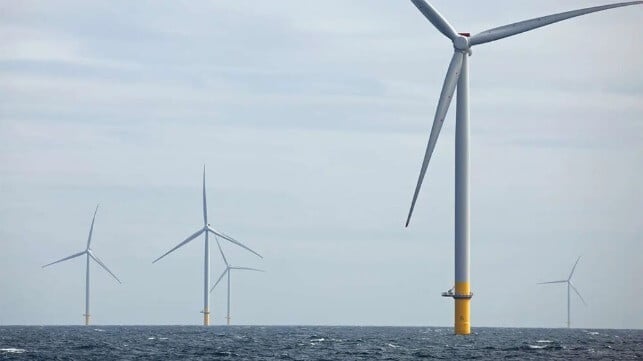New York Ends Third Wind Round Without Awards Due to Material Modifications

In the latest setback to U.S. plans to accelerate renewable energy development, New York State regulators today reported they closed the third round of offshore wind solicitation with no final awards. Last fall, New York’s Governor Kathy Hochul had hailed the round as the state’s largest investment in renewable energy, which included the preliminary selection of 4GW of offshore capacity as well as other projects.
“Subsequent to the provisional award announcement, material modifications to projects bid into New York’s third offshore wind solicitation caused technical and commercial complexities between provisional awardees and their partners, resulting in the provisionally awarded parties’ inability to come to terms,” today’s announcement from NYSERDA (New York State Research and Development Authority) stated. The state company set up to oversee the renewable energy programs said no final awards will be made, concluding the round, but that it will “look to advance a future competitive solicitation.”
NYSERDA specifically cited a decision by GE’s Vernova group which manufactures the nacelles used in the wind turbines. The group reported it was not pursuing a planned 18 MW Haliade-X turbine platform and instead would continue to focus on the smaller 15.5/16.5 MW platform. NYSERDA says this caused material changes to the proposed projects.
The round provisionally awarded three offshore wind projects, which included the 1,404 MW Attentive Energy One to be developed by TotalEnergies, Rise Light & Power, and Corio Generation, the 1,314 MW Community Offshore Wind to be developed by RWE Offshore Renewables and National Grid Ventures, and the 1,314 MW Excelsior Wind to be developed by Vineyard Offshore. Each of the projects had been based on the 18MW turbines and shifting to the smaller turbines would either have reduced the total power output or required more turbines to achieve the stated objectives. The economics of each of the projects was impacted including the construction costs and operations.
NYSERDA has also provisionally awarded $300 million of New York State grant funding to GE Vernova and LM Wind Power for nacelle and blade manufacturing in New York’s Capital Region. That grant was not completed due to the shift in the production plans with NYSERDA reporting the funds will be made available through a future competitive solicitation to continue the development of the offshore wind supply chain in New York.
“Amidst the evolving challenges faced by the offshore wind industry, NYSERDA is continuing to take proactive measures to respond to and address these issues head-on,” they said in announcing the closing of the round. NYSERDA said, it, however, remains committed to advancing New York’s offshore wind industry. These next steps NYSERDA reports “will be announced in the near future.”
New York had already been reported as working on a new solicitation and the expectations are that they will rush out the next round similar to an effort launched in January 2024 after several projects threatened to cancel citing rising costs. NYSERDA refused a proposal to renegotiate existing power purchase agreements and instead launched a new solicitation permitting the projects to cancel their agreements and rebid.

that matters most
Get the latest maritime news delivered to your inbox daily.
Negotiations are ongoing to complete agreements with Equinor for the 810 MW Empire Wind 1 project and with Ørsted for the 924 MW Sunrise Wind project. Eversource Energy, which had been partnering with Ørsted for the project, reported today it has completed the sale of its 50 percent interest in the project as part of a previously announced plan to end its investment in offshore wind energy.
The delay of the three projects in the third round will both slow New York’s progress on its goals for renewable energy and further jeopardize the Biden administration’s goal of 30 GW of offshore energy capacity by 2030. Many experts had already predicted that the U.S. was behind schedule but the industry showed renewed momentum in 2024 with several projects moving forward.
